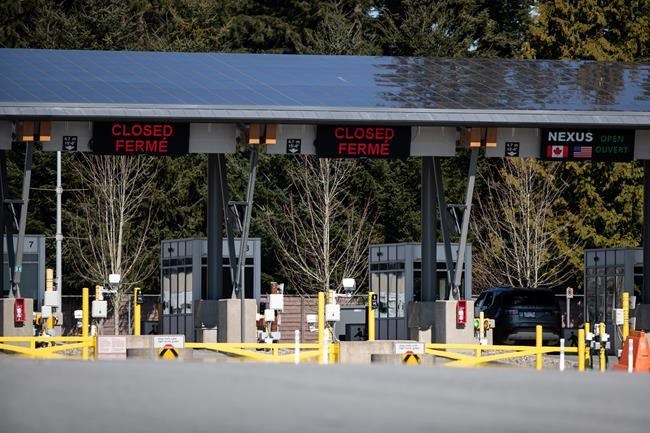OTTAWA — Prime Minister Justin Trudeau announced most foreign nationals would be banned from entering Canada to help slow the spread of the novel coronavirus, but U.S. citizens are exempt. Here's what you need to know about that move.
Here's what you need to know:
Why now?
The Liberal government has been facing increasing pressure to close the borders in recent weeks, as more countries have been imposing stiffer controls on who they allowed to enter. The federal government repeatedly defended its position, explaining that stronger border measures likely wouldn't work and in fact may have adverse consequences. Officials advocated for a science-based approach.
But Monday, as Canada surpassed 400 cases of the virus, Trudeau said the science had changed.
"We've now come to the point where the advice from public health officials is that additional border measures, on top of the social distancing measures we are encouraging domestically, is the right combination to move forward," he told reporters outside his residence.
Dr. Theresa Tam, the chief public health officer, said most of the confirmed cases in Canada were still connected to travellers and spread to their close contacts.
Why not Americans?
Trudeau and his ministers were asked repeatedly why visitors from the U.S., where there are several pockets of sustained community transmission, are still being allowed into Canada.
It seems to come down to trade, with Trudeau pointing to the "level of integration between our two countries."
Deputy Prime Minister Chrystia Freeland said the Canada-U.S. border is a "lifeline," and "absolutely vital to the daily life of people who live on both sides." Public Safety Minister Bill Blair pointed to workers who cross the border in each direction every day to get to work. Health Minister Patty Hajdu said there are also "critical" supply chains that rely on open borders between the two countries for food and other essential goods.
Will the border measures still be effective?
Public health officials continue to monitor the effect social distancing and the new border measures have on the spread of the virus in Canada.
Tam said border measures are just one layer of protection, and they are never perfect.
Americans and Canadians have both been warned to avoid non-essential travel outside of their own countries.
Blair said that should reduce the number of tourists and unnecessary visitors into Canada. Any anyone who comes from the U.S. will be "strongly encouraged" to self-isolate for two weeks to stop the potential spread of the virus into Canada. He said that means that Canada feels it can manage any incoming cases with screening measures.
Could the measures change?
It certainly sounds that way. The message officials and politicians kept repeating Monday is that they continue to monitor the situation closely and are prepared to take other action in the coming days.
Tam said Canada will be looking to make sure the U.S. institutes "certain measures" to limit the spread of the virus within its own borders, and would be monitoring the situation there as well. She didn't say what those measures would be.
This report by The Canadian Press was first published March 16, 2020.
Laura Osman, The Canadian Press



